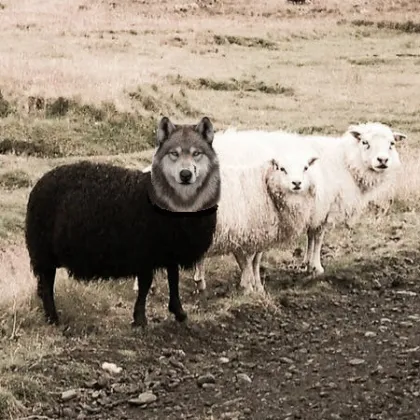On the Gospel of John, Part 28: Wolves Cannot Be Sheep

On the Gospel of John, Part 28: Wolves Cannot Be Sheep
Thus far in John chapter 10 we have seen Yahshua Christ proclaim for Himself to be the Good and True Shepherd who came in through the door of the sheep, and He also proclaimed for Himself to be the Door of the sheep. As we examined the relevant oracles of the Old Testament prophets concerning both the sheep and the Shepherd, it is revealed once again that Yahshua Christ is indeed Yahweh God incarnate, who had long before promised to come and to gather His Sheep for Himself, which are the scattered and lost sheep of the house of Israel, and that is the only stated purpose of the Shepherd.
We also discussed at length another aspect of the discourse of the Good Shepherd, which is the phenomenon of hirelings and wolves. The hireling may indeed be one of the sheep, who cares only for his own gain and for profit he allows wolves into the sheepfold, as we read from Isaiah chapter 56. Or perhaps, as Christ Himself had described here, the hireling flees from fear when the wolf comes. Of course, either sheep or wolves may be hirelings, but wolves are not sheep, and they did not come in through the door of the sheep. For that reason wolves cannot ever be sheep, and wolves in the sheepfold can only be thieves and robbers, outsiders who are looking to profit by devouring the sheep. We explained that the door of the sheep was the genetic line of Abraham through Jacob-Israel, as that is how Yahshua Christ and all of His sheep come into the world. Yahshua Christ also being Yahweh incarnate, the Creator of the sheep, He is also that Door. Wolves did not come through that door as they were not created by Him, but wolves here are used as a metaphor to represent corruptions of His creation – bastards, and not sons.








 Please click here for our mailing list sign-up page.
Please click here for our mailing list sign-up page.








Recent comments